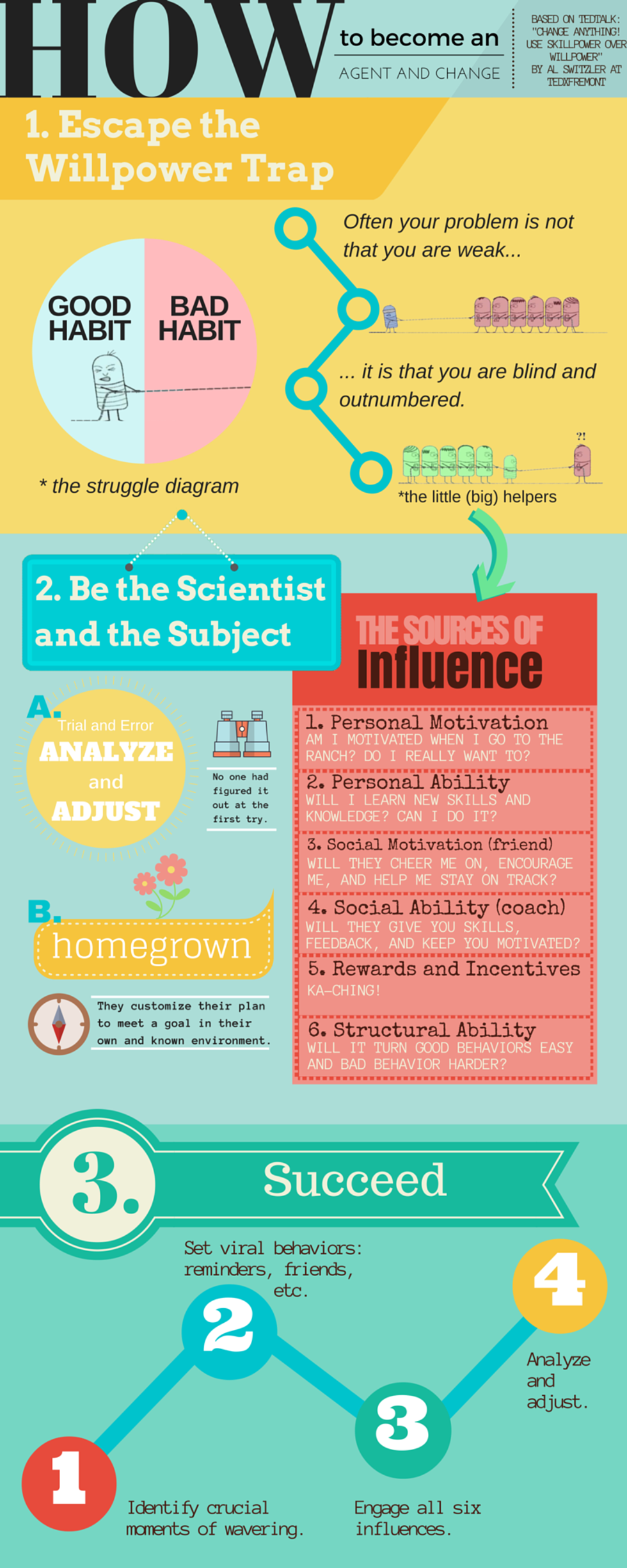The alarm blares and prepares you for the busy schedule you have set for yourself. With enthusiasm, you jump out of bed and do the morning routine you set yourself the day before. In a whirlwind of activism, you prepare your food 30 minutes before you even have to and feel pretty good about yourself. This new habit thing is not a big deal, is it? You don’t get why you never did that before.
Two weeks later, the only alarm waking you now is the bladder demanding to be heard and emptied. The hopes and dreams you held a few weeks ago faded into the nothingness of the smashing realization that it doesn’t matter anyway. Or something akin to that.
Maybe this happened to you for the first time – trying to adopt new habits and they just don’t stick. Maybe it happened to you for the "nth" time and hopelessness sneaks in.
Thoughts like “I am not disciplined enough”; “I just don’t have the determination”; or “I don’t have enough willpower” go through your head. It took me a long time to realize that it has nothing to do with willpower: It is everything else that is missing that might make you swerve off your new goals and resolutions.
One important fact that I want to remind you of is this common idiom: Change doesn’t happen overnight, it is gradual.
1. Willpower is not everything.
When we think about finishing a task or sticking to a new habit, we think we only need to have enough willpower. Willpower will get us through and everything else comes with that. This path of thinking is not very healthy and actually diminishes our chances to really change a habit. According to Al Switzler, if we think Willpower is all we need “we are outnumbered and blinded” and don’t see all the other agents responsible to help us change a habit.
Next to willpower are other motivators, such as personal motivation, personal ability, social responsibility, social ability, rewards and incentives, and structural abilities.
If you engage all of those, the chances of you sticking with your habits are more likely than not. Willpower cannot single-handedly shoulder all those changes you want to achieve.
2. Be the scientist and the subject.
If you want to change a habit, it is not enough to only take other people’s stories of success. You have to use your own, homegrown plan to be successful. That means you have to know yourself and know how you work. Figure out the crucial moments of weaknesses and determine behaviors that counter those moments. Do you find yourself browsing on Facebook after five minutes of work? How can you solve that problem? What behaviors would help you to avoid that? You can block Facebook for an hour while you work, or reward yourself by browsing YouTube for an hour after you have done your work. Still, you need to be disciplined and keep to these viral behaviors.
Customize the plans to your needs and always, always analyze and adjust your behavior. What works well? What doesn’t work so well? Where can you improve? Maybe giving yourself rewards afterwards doesn’t work because this is not an incentive? Find out what works for you and what doesn’t. In order to change, you need to take a break once in a while where you think about your progress and check if you are on the path or if you strayed.
Be OK with failing a few times. A German proverb says (my father loves this proverb. A lot): “No master ever fell from heaven.” You have to try different approaches and always analyze and adjust.
3. Succeed
Saying that you will succeed with these “easy” steps is not the truth, necessarily. Personally, seeing those steps laid out by someone else and them talking about reasons why we fail to change habits have put so many things into perspective for me.
I realized that the problem of changing habits is that we end up in this cycle of self-criticizing and seldom are compassionate about failing and screwing up. I never took a step back and analyzed and adjusted, never contemplated what behaviors don’t work and how I could change it according to how I work and not some scheme that you can apply to anything and anyone. Changing is a universal event and it requires work, awareness, and determination.
In the end, changing is rough and I won’t sugar coat it. You might fail and you might give up trying to change. You have to ask why you want to have those new habits. Are you being true to yourself or are you following the “I should do that” scheme of thinking? Listen to yourself and really try to figure out who you are. By knowing your strength and weaknesses, you can truly master everything you set your mind to.
4. I wish you the best of luck!
Authors Note: If you are a visual person, you can use this neat little infographic about the willpower trap and can even listen to the amazing and eye-opening TED from Al Switzler talk that influenced me in writing this article here.




















